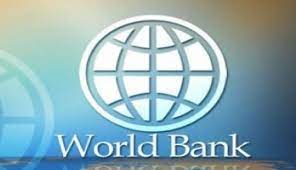By Own Correspondent
GLOBAL financier, World Bank has called on Zimbabwe to develop an Insurance Scheme for informal sector workers while leveraging on the mobile money ecosystem as a safety net to cushion the vulnerable groups in the country in its report; Country Economic Memorandum: Accelerating Growth and Jobs in Zimbabwe.
The report found that Zimbabwe’s informal economy is heterogeneous with respect to poverty levels amid estimations that 34% of all informal workers were extremely poor. This was driven by informal communal and resettlement farmers whose incidence of extreme poverty was 42% compared to only 15% for other informal workers.
The extreme poverty rates for all informal workers increased by 10% after the 2019 economic crisis which pushed 52% of women into informality.
The analysis shows that productivity of informal jobs is highly constrained, affecting those who already have limited access to finance, markets, skills, and land ownership with income being lower in the informal economy, particularly for women, while working conditions and access to social protection are poor.
The global financier says the analysis found that only 12% of informal workers lived in a household where at least one member benefited from government safety nets or humanitarian assistance with the coverage going down to only 6% among the group of informal workers who were not farmers.
To avert the crisis bedeviling the sector, the World Bank has proffered a number of solutions with key among them being to leverage Zimbabwe’s highly developed mobile money ecosystem to encourage financial inclusion and engage informal workers through social assistance.
“Another crucial recommendation is to develop a social insurance scheme for informal workers who may not be poor enough to be eligible for social assistance programs but remain highly vulnerable to shocks.
“The government is currently prioritising the design and piloting of a pensions system for the informally employed that will help inform the future of social insurance policy. This is a welcome development and a first step to ensure the protection of informal workers,” the WB said.
The report says on a more positive side, Zimbabwe’s informal workers were well organized into informal workers associations. These provide a platform for policy dialogue and act as safety nets for the members.
“Indeed, the role of these structures ranges from providing support to households in case of emergency to coordinating political representation.
“Further, informal workers have access to digital services through the widespread use of mobile money in Zimbabwe, particularly in urban areas, presenting a strong opportunity for further financial inclusion which remains low among this group,” added the report.








Leave a comment